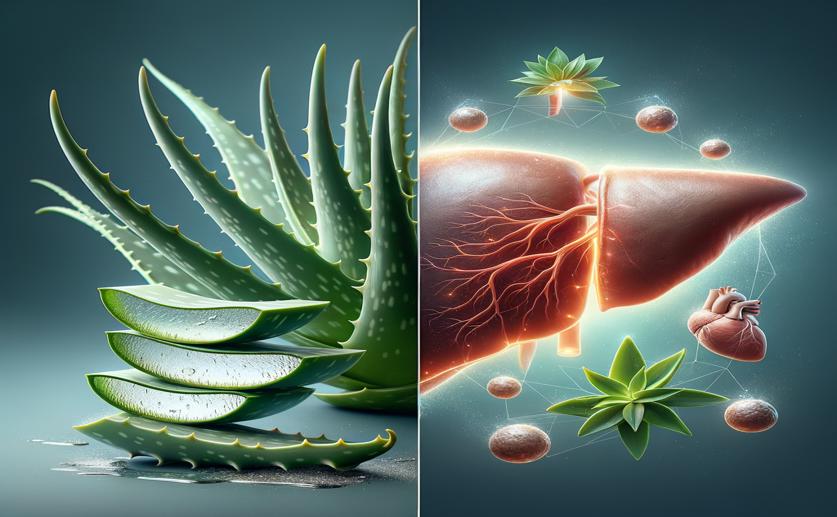
Aloe Vera Gel Helps Protect the Liver from Heavy Metal Damage
Jenn Hoskins
13th March, 2024

Key Findings
- In an Ain Shams University study, Aloe vera gel reduced liver damage from cadmium in rats
- Aloe vera intake lowered oxidative stress, inflammation, and cell death in the liver
- The study suggests Aloe vera could help protect the liver against heavy metal toxicity
References
Main Study
1) Aloe vera gel relieves cadmium triggered hepatic injury via antioxidative, anti-inflammatory, and anti-apoptotic routes.
Published 12th March, 2024
https://doi.org/10.1007/s12011-024-04141-4
Related Studies
2) Molecular mechanism of heavy metals (Lead, Chromium, Arsenic, Mercury, Nickel and Cadmium) - induced hepatotoxicity - A review.
3) Aluminum, Arsenic, Beryllium, Cadmium, Chromium, Cobalt, Copper, Iron, Lead, Mercury, Molybdenum, Nickel, Platinum, Thallium, Titanium, Vanadium, and Zinc: Molecular Aspects in Experimental Liver Injury.
4) Elucidating the contribution of mitochondrial glutathione to ferroptosis in cardiomyocytes.



 16th January, 2024 | David Palenski
16th January, 2024 | David Palenski